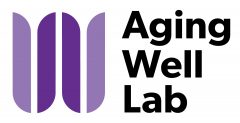Summer is upon us, bringing with it a little extra time to indulge in the things that bring us joy–like reading. Dr. Kendra Seaman, Director of the Aging Well Lab, has curated a list of her favorite books, offering insights on everything from navigating graduate school to becoming a thoughtful mentor. So grab your e-reader or a physical copy, curl up with an iced drink, and get ready to be inspired and informed.
For graduate students:
Thinking about Graduate School? Dr. Seaman has some books for you!
A Field Guide to Graduate School: Uncovering the Hidden Curriculum
by Jessica McCroy Calarco
This book is full of the unwritten rules of navigating academia, from applying for graduate school to the academic job market. A must-read for those considering graduate school!


The Writing Workshop: Write More, Write Better, Be Happier in Academia
by Barbara Sarnecka
Full text available for free here: https://osf.io/n8pc3/
A very approachable, entry-level book on writing (and surviving) in academia. This book will help you become a better academic writer. Members of my lab use her long-term and term plan documents to stay on track.
Calling Bullshit: The Art of Skepticism in a Data-driven World
by Carl T. Bergstrom and Jevin Darwin West
A modern primer on how numbers can be used to deceive us.

For postdocs/junior faculty:
Ready to take that next step in your career? Here are a few books that might help you get there:
Writing Science: How to Write Papers That Get Cited and Proposals that Get Funded
by Joshua Schimel
An excellent book focused on how to use writing to communicate your ideas clearly to a variety of audiences.


Ask for It: How Women Can Use The Power of Negotiation to Get What They Really Want
by Linda Babcock and Sara Laschever
A great book on negotiation with practical advice and concrete exercises to practice negotiation in everyday, real-world situations to build those negotiating skills. Get started long before you’re negotiating that first job offer!
Entering Mentoring: A Seminar to Train a New Generation of Scientists
by Jo Handelsman, Christine Pfund, Sarah Miller Lauffer, and Christine Maidl Pribbenow
Ideally, you’d participate in a mentorship training sponsored by the Center for the Improvement of Mentored Experiences in Research. But if you’re not able to access one of those workshops, their curriculum is full of practical tools you can use with students and other mentees. We use many of the tools in this book with the undergraduate research assistants in my lab.

Whether you’re a student, mentor, or simply a person eager to learn, we hope Dr. Seaman’s recommendations deepen your understanding or inspire you to take your next big step. Remember your sunblock–and happy reading!
